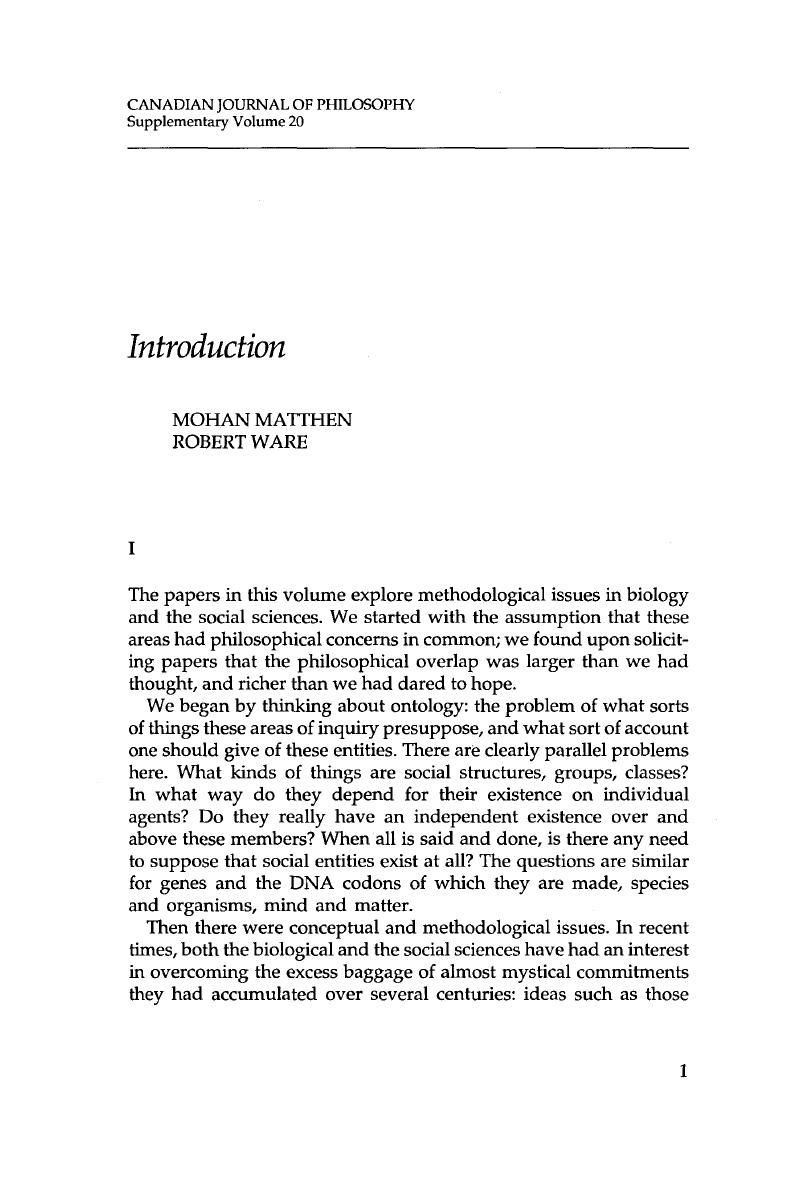No CrossRef data available.
Published online by Cambridge University Press: 01 January 2020

1 Marx, and Engels, Collected Works, 41, 246f.Google Scholar It is widely believed that Darwin declined a request by Marx to dedicate Capital to him. The sole evidence is a letter from Darwin; however, there is no addressee named in the letter, and it is now apparent that the letter was sent to Edward Aveling, Marx's executor and son-in-law, about a book written by Aveling himself. (On this see Lecourt, Dominique ‘Marx in the Sieve of Darwin,’ Rethinking Marxism 5 [1992] 6–28CrossRefGoogle Scholar, and Carver, Terrel ‘Darwinism’ in Tom, Bottomore ed., A Dictionary of Marxist Thought, 2nd edition [Oxford: Blackwell 1991].)Google Scholar
2 Ibid., 25; quoted by Holmstrom, 584.
3 Keller, Evelyn FoxReflections on Gender and Science (New Haven: Yale 1985), ch.8Google Scholar
4 Hall, Thomas S. ‘On Biological Analogs of Newtonian Paradigms’, Philosophy of Science 35 (1968) 6–27CrossRefGoogle Scholar
5 ‘Changing Strategies: A Comparison of Reductionist Attitudes in Biological and Medical Research in the Nineteenth and Twentieth Centuries,’ in Ayala, F.J. and Dobzhansky, T. eds., Studies in the Philosophy of Biology; Reduction and Related Problems (Berkeley and Los Angeles: University of Calfornia Press 1974)CrossRefGoogle Scholar. It is hard to read the discussion section following this paper without thoughts of patriarchy coming to mind: greybeard theoreticians patronizing the upstart female scholar, failing to understand her point but dismissing it as irrelevant.
6 See, for example, Kitcher (1984), referred to by Dupré.
7 As quoted by Bhargava, RajeevIndividualism in Social Science (Oxford: Clarendon 1992), 23CrossRefGoogle Scholar. Bhargava has a good discussion of varieties of methodological individualism.
8 For an account of how this debate plays itself out in sociology, see Ritzer, GeorgeContemporary Sociological Theory, 3rd edition (New York: McGraw Hill 1992).Google Scholar
9 Elster, Making Sense of Marx (Cambridge: Cambridge University Press 1985)Google Scholar. These issues are debated further in Ware, R.X. and Nielsen, Kai eds., Analyzing Marxism, Canadian Journal of Philosophy Supplement 15 (Calgary: University of Calgary Press 1989)Google Scholar.
10 Wright, E.O.Levine, A. and Sober, E.Reconstructing Marxism (London: Verso 1986), ch. 6Google Scholar
11 Bechtel disapproves of ‘eliminative materialism,’ a position that seeks to get rid off psychological entities such as beliefs and desires. It seems that he identifies this position as hostility to higher level (that is, composite) entities. However, as it is argued by philosophers like Patricia and Paul Churchland, it urges something like what Bechtel calls a ‘vocabulary shift’ in talking about composite psychological entities: do not press ordinary language into service while characterizing these entities, but take over new concepts to be found in information theory, neuroscience, and computational theory, they say.